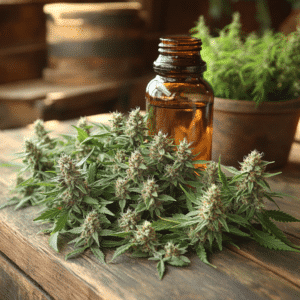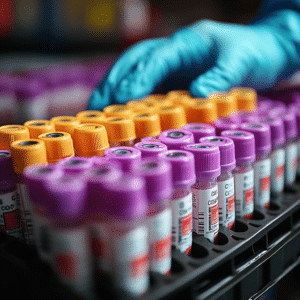The Intricate Link between Self-Esteem and Addiction
Self-esteem and addiction are tightly knotted, influencing an individual’s ability to manage their life and sustain recovery. When self-worth is low, the pain of feeling inadequate can lead people to search for solace in harmful substances. High self-esteem acts as a bulwark, allowing individuals to stay sober and make informed decisions even when relapse looms large. Mothers Against Addiction understands this intricate connection, striving to guide parents through their own emotional turmoil to better support their children struggling with addiction.
The Science Behind Self-Esteem and Substance Abuse
Research illuminates the correlation between low self-esteem and substance abuse. The National Institute on Drug Abuse (NIDA) reports that diminished self-worth often drives individuals to seek out drugs or alcohol as an escape from their emotional torment. The University of Texas also explains that low self-esteem hampers personal development and increases the tendency towards drugs or alcohol consumption. Though alcohol might temporarily inflate self-esteem, it leaves long-term damage that only deepens the emotional chasm and perpetuates the cycle of abuse. By fostering a healthy sense of self, addiction’s grip can be significantly weakened.
| Aspect | Description |
|---|---|
| Effects of Low Self-Esteem | |
| Self-Esteem and Alcohol Use | |
| Role in Addiction Recovery | |
| Benefits of High Self-Esteem |
Real-Life Examples of Self-Esteem Impacting Recovery
Celebrity Case Study: Robert Downey Jr.
Take Robert Downey Jr., for example. His battle with substance abuse was well-publicized, yet his recovery is a testament to the power of self-esteem. Renewed self-worth, bolstered through therapy, loved ones’ support, and career success, fostered his return as a celebrated Hollywood figure prominently in the Iron Man franchise. His story underscores how vital it is to nurture self-esteem for those battling addiction.
Brand Efforts: Dove’s Self-Esteem Project
While not directly linked to addiction, Dove’s Self-Esteem Project illustrates how promoting self-worth can lead to overall well-being. By encouraging positive self-regard from a young age, such initiatives help build resilience that could potentially stave off future addiction. It’s about creating a buffer of self-respect and dignity that shields individuals from the lure of substances.
The Role of Therapy and Counseling
A plethora of therapeutic options, such as Cognitive Behavioral Therapy (CBT), help rebuild self-esteem in those struggling with addiction. CBT helps individuals identify and reframe negative thought patterns into positive ones, laying the groundwork for a healthier self-image. Trauma-informed care, for instance, offers a compassionate context within which patients can address their emotional pain without judgment, easing their path to recovery.
Peer Support and Community Influence
Organizations such as Alcoholics Anonymous (AA) and Narcotics Anonymous (NA) underscore community support’s pivotal role in fostering self-esteem. The sense of belonging and mutual encouragement these groups provide bolsters an individual’s self-worth and commitment to sobriety. Equally, community support structures like these offer a valuable framework for staying the course in recovery.
Effective Strategies to Boost Self-Esteem in Recovery
Mindfulness and Self-Compassion Exercises
Mindfulness practices, popularized by Jon Kabat-Zinn, encourage non-judgmental awareness of one’s thoughts and feelings. This approach helps in focusing on the present moment, fostering self-acceptance, and elevating self-esteem. Dr. Kristin Neff’s self-compassion exercises further enhance this by promoting a kinder and more understanding relationship with oneself, crucial for individuals on their recovery journey.
Setting and Achieving Personal Goals
Goal-setting is a crucial strategy in building self-esteem within recovery programs. Initiatives like SMART Recovery emphasize the importance of setting and achieving small, manageable goals. Each achievement, no matter how minor, contributes to an evolving sense of competence and resilience, essential for maintaining long-term sobriety.
The Role of Families and Loved Ones
Family involvement is quintessential in nurturing self-esteem among recovering individuals. Family-based therapy provides a supportive environment where individuals feel valued and understood, aiding in their recovery. Programs such as Family Drug Support Australia demonstrate the critical role families play, offering tools and strategies that enhance the support network needed for effective recovery.
Innovative Approaches in Self-Esteem Building
Virtual Reality Therapy
Emerging technologies like Virtual Reality (VR) therapy offer innovative ways to rebuild self-esteem. VR therapy can simulate positive social interactions and achievements, helping individuals visualize their success and build a healthier self-image. Companies like Limbix are pioneering these technologies tailored to mental health and addiction recovery.
Creative Arts Programs
Engagement in the creative arts acts as a therapeutic outlet for expressing and processing emotions, benefiting self-esteem. Programs such as Art Therapy Studio show significant improvements in participants’ self-worth, highlighting the potential of creative expression in aiding addiction recovery.
Innovative Wrap-up
Navigating the path to recovery demands a holistic approach that recognizes the central role of self-esteem. It’s about fostering a renewed sense of self-worth that empowers individuals to envision and create a life with purpose beyond addiction. Through therapy, community support, technological innovations, and active family involvement, individuals can achieve stable, fulfilling recovery rooted in strong self-esteem.
As Robert Downey Jr.’s journey demonstrates, with the right support and belief in oneself, the narrative of addiction can evolve into one of resilience and renewal. Mothers Against Addiction remains committed to supporting parents and their children through these challenges, reinforcing that self-esteem is indeed a key to lasting recovery.
Self-esteem and Addiction: Key to Recovery
The Interplay Between Self-Esteem and Addiction
Did you know that poor self-esteem is like having certified funds in an account you can’t access? It creates a barrier to reaching our true potential. Low self-esteem often leads individuals into the clutches of addiction, creating a vicious cycle that’s tough to break. Research shows that people struggling with addiction frequently battle feelings of worthlessness, making it harder for them to recover without addressing these underlying issues.
Trivia: Positive Self-Esteem as a Shield
Here’s a fun fact: Engaging in sports like soccer can boost self-esteem significantly. Players like those in matches such as Sheffield United Vs Man city Lineups often display higher levels of self-confidence. This sense of accomplishment and community can serve as a protective barrier against falling into addictive behaviors. Interesting, right? It’s amazing how something as simple as regular physical activity can fortify our mental health.
Mental Health and Esteem in Recovery
Ah, mental health services play a crucial role in improving self-esteem among those recovering from addiction. Our mental health services( offer invaluable support, making it easier for individuals to reclaim their sense of self-worth. Being proactive about mental health can indeed pave the way to a more resilient self, steering clear of addiction’s snare.
Unexpected Connections
Sometimes, we find fascinating connections in the least expected places. Remember the recent earthquake today in Sacramento? Just like an earthquake, a sudden hit to our self-esteem can shake us to our core, leaving us vulnerable. It’s vital to have strong support systems to rebuild and stand firm once more, through professional resources, community support, or even therapeutic activities.
The Role of PTSD in Addiction
It’s like a plot twist from a popular anime series featuring Diane From Seven deadly sins; PTSD can be an unexpected catalyst for addiction. When trauma leads to post-traumatic stress, individuals may self-medicate with substances, lowering their already fragile self-esteem. Ptsd And addiction interplay in heartbreaking ways, making recovery all the more complex. But, addressing PTSD can dramatically improve self-esteem and promote lasting sobriety.
By understanding how self-esteem and addiction intertwine, we can better support our loved ones on their road to recovery, one step at a time.
What is the relationship between self-esteem and alcoholism?
Self-esteem and alcoholism are closely linked. While alcohol might give a temporary boost or relief, it often lowers self-esteem in the long run, trapping individuals in a vicious cycle of dependence.
Why is self-esteem important in recovery?
Self-esteem is crucial in recovery because it keeps you grounded. Feeling worthy and confident helps you make better decisions and lowers the chance of relapse, making long-term sobriety more attainable.
How can low self-esteem lead to abuse?
Low self-esteem can make a person feel constantly inadequate, which might lead them to exert control over their partners through manipulation or even violence in an effort to compensate.
What are 3 effects of high self-esteem?
High self-esteem typically results in better relationships, improved performance at school or work, and enhanced mental and physical health. It also generally steers people away from antisocial behavior.
What is the relationship between self-esteem and substance abuse?
Self-esteem plays a big role in substance abuse. People with low self-esteem might turn to drugs or alcohol as a coping mechanism, while healthy self-esteem can help resist those temptations.
Does quitting alcohol improve self-esteem?
Quitting alcohol can indeed boost self-esteem over time. As you break the cycle of dependence and take control of your life, your confidence and sense of worth usually improve.
Do people recover from low self-esteem?
People can recover from low self-esteem. Through therapy, self-improvement practices, and finding a supportive community, individuals can rebuild their self-worth.
What are the benefits of low self-esteem?
Actually, there aren’t real benefits to low self-esteem. It generally leads to feelings of inadequacy and negative behaviors, rather than providing any positive outcomes.
How to build confidence in recovery?
Building confidence in recovery involves setting and achieving small goals, seeking professional help, and surrounding yourself with supportive people who lift you up.
What childhood trauma causes low self-esteem?
Childhood trauma like neglect, abuse, or severe criticism can severely impact self-esteem, making individuals feel unworthy or inadequate as they grow older.
What weakens self-esteem?
Self-esteem often weakens from constant criticism, negative self-talk, and hanging out with unsupportive or judgmental people.
Does narcissistic abuse cause low self-esteem?
Narcissistic abuse definitely can cause low self-esteem. The manipulative and controlling behavior of a narcissistic person can erode the victim’s sense of self-worth over time.
What does a person with low self-esteem look like?
A person with low self-esteem might appear withdrawn, overly critical of themselves, and unwilling to take on new challenges.
What happens when your self-esteem is too high?
When your self-esteem is too high, it can lead to arrogance and an overinflated sense of self-importance, which may alienate others and create conflicts.
How does a person with high self-esteem behave?
A person with high self-esteem generally behaves confidently, treats others with respect, and handles criticism well. They have a balanced view of their abilities and worth.
What is the relationship between alcohol and self control?
Alcohol often impairs self-control, making people more likely to act impulsively or make poor decisions that they wouldn’t normally make when sober.
What personality disorder is associated with alcoholism?
Borderline Personality Disorder (BPD) is often associated with alcoholism due to the impulsive and self-destructive behaviors that are characteristic of the disorder.
What is the relationship between self-esteem and delinquency?
Low self-esteem and delinquency can be connected. Young people with low self-esteem may engage in delinquent acts as a way to gain approval or cope with their feelings.
Does self-esteem mediate the effects of loneliness on problematic alcohol use?
Yes, self-esteem can mediate loneliness-related problematic alcohol use. Higher self-esteem can provide a buffer against loneliness, reducing the urge to turn to alcohol for comfort.




























